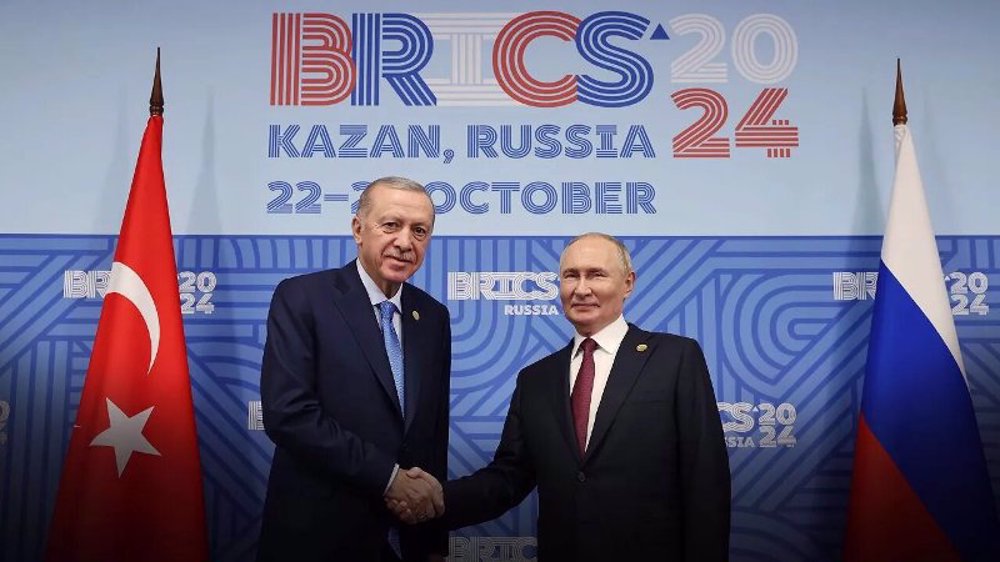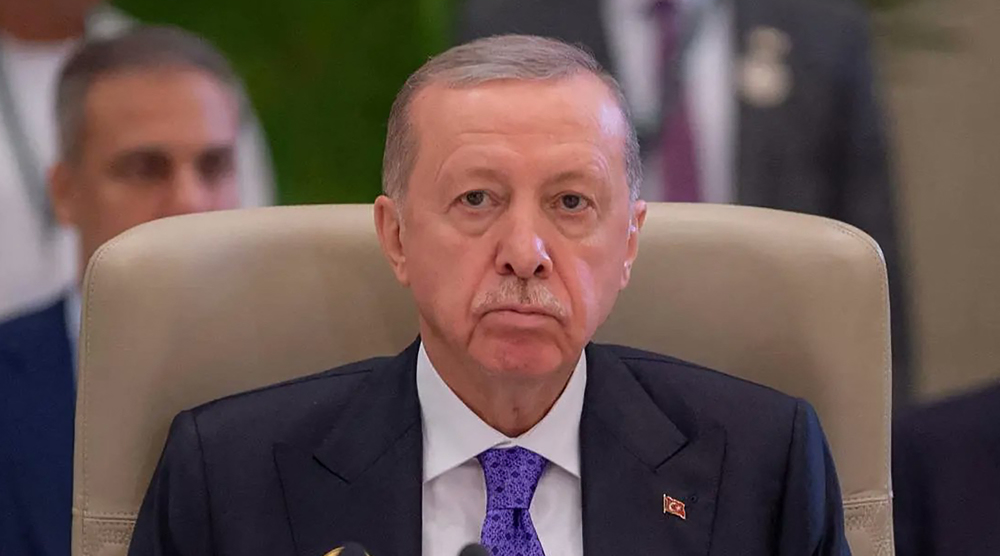Turkish parliament approves bill to lift MPs immunity
Turkey's parliament has approved a controversial government-backed bill which would strip lawmakers of their immunity from prosecution in a move which critics say targets Kurds and dissidents.
A total of 348 legislatures in the 550-seat assembly supported the bill on Tuesday, with 155 voting against the measure, parliamentary vice president Ahmet Aydin announced after the debate and vote.
A three-fifths majority - 330 votes - are needed in a second ballot to allow a referendum on the issue. The vote is slated for Friday.
Under the Turkish law, members of parliament are immune from prosecution while in office. The police can file “dossiers” against politicians, which can lead to a legal process once they cease to be members of parliament.
If the bill, which was proposed by the ruling party of President Recep Tayyip Erdogan is passed, it will lift the immunity of 130 lawmakers from all parties whose dossiers have been sent to the parliament speaker.
The bill had already led to unprecedented scenes at the Parliamentary Constitutional Committee, with angry legislators exchanging fist and feet blows. The brawl prompted the pro-Kurdish People's Democratic Party (HDP) representatives to withdraw.
The HDP says the legislation is essentially a move to drive its MPs out of the parliament.
“What this motion seeks to destroy is the HDP in parliament,” party co-leaders Selahattin Demirtas and Figen Yuksekdag, both of whom could face prosecution, said in a letter to European MPs.
The HDP said the bill could lead to the prosecution of 50 HDP legislators out of its total contingent of 59.
“If successful, this coup would be a most crucial step for Erdogan to replace Turkey's parliamentary democracy... with an absolutist presidential system,” the HDP's co-leaders said.

Erdogan has called for the prosecution of HDP members, accusing them of being affiliated to the outlawed Kurdistan Workers’ Party (PKK).
Should a number of HDP lawmakers leave the parliament, it would ease the way for Erdogan to realize his dream of changing the constitution to create a presidential system in Turkey.
Ankara has been engaged in a large-scale campaign against the PKK in its southern border region in the past few months. The Turkish military has been pounding the group’s positions in northern Iraq.
The operations began in the wake of a deadly July 2015 bombing in the southern Turkish town of Suruc. More than 30 people died in the attack, which the Turkish government blamed on the Takfiri Daesh terrorist group.
After the bombing, the PKK militants, who accuse the government in Ankara of supporting Daesh, engaged in a series of reprisal attacks against Turkish police and security forces, prompting the Turkish military operations.
Diplomat discourages recourse to pressure, intimidation, confrontation against Iran
UN: 2024 deadliest year for aid workers amid genocide in Gaza
Gaza health official warns of hospital shutdowns within 48 hours
Israel kills 5 more paramedics in southern Lebanon: Health ministry
Iran to launch ‘new, advanced’ centrifuges in response to IAEA resolution: AEOI
Yemen fires hypersonic missile at Israeli airbase
VIDEO | New Delhi chokes under toxic smog as air quality remains at hazardous levels
VIDEO | Press TV's news headlines













 This makes it easy to access the Press TV website
This makes it easy to access the Press TV website